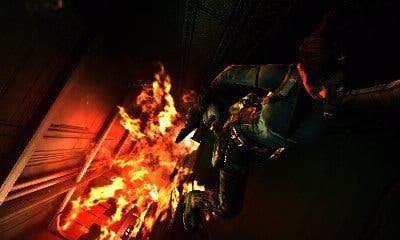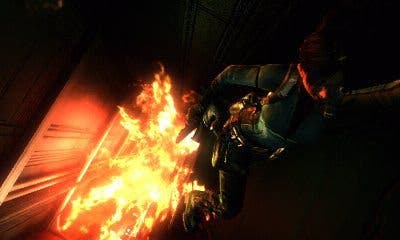Capcom showcases Resi 3DS tech
Scaled-down PS3/360 engine behind it.
Capcom has revealed new details on its 3DS tech, confirming that the same Framework MT engine used on PC, PS3 and Xbox 360 has also been deployed on Nintendo's upcoming stereo-3D handheld.
Japanese journalist Zenji Nishikawa posted the details on Watch Impress (thanks Andriasang for the translation), including confirmation that Resident Evil Revelations has been designed and coded from the ground up exclusively for Nintendo 3DS.
The 3DS itself may well feature a little-known vintage 2006 graphics chip (the DMP Pica-200), but remarkably little is known about the full make-up of the console, in particular the CPU. There's still a huge amount of speculation on the level of performance developers can actually extract from the new hardware. While Capcom is happy to showcase its own achievements on the handheld, the team also reveals that Nintendo NDAs prohibits it from talking about the hardware make-up of the system itself.
Graphics demos of the GPU suggest that while the Pica-200 may be lacking compared to more modern GPUs such as the IMG chips found in the newer iOS devices, it's still a decent performer - one tech demo from PC benchmark specialists FutureMark actually runs at an 800x600 resolution. 3DS titles operate at a native resolution of 800x240 (effectively twin 400x240 images side-by-side, one per eye). Obviously the fewer pixels the GPU needs to handle, the faster it can process each frame.
Despite the lack of programmable pixel shaders, the fixed render pipeline is capable of some pretty impressive stuff. Capcom says that the mobile version of its Framework MT engine operates in a very similar manner to its HD counterpart. As we noted in our hands-on with the 3DS hardware at E3, the assets seen in the Resident Evil demo are based on the HD equivalents from Resident Evil 5, although they have clearly been downscaled in terms of geometry and texturing. However, as the 3DS screen and the native resolution is so small relatively, the overall effect is remarkable.
With that in mind, it's clear that effects such as high-dynamic range rendering and colour-grading - powerful features in the full Framework MT - have been translated to the mobile screen very well indeed.




Key ingredients in the make-up of the demo scene are more subtle effects such as the normal maps and self-shadowing. While clearly far more primitive than the versions seen on the PS3 and Xbox 360, they add a great deal in terms of adding texture, depth and realism.




Also intriguing is that Capcom is planning to support the 2D mode of the 3DS hardware with additional graphical features you won't find when stereo 3D is engaged. Both motion blur and anti-aliasing are in place when the depth slider on the 3DS is set to the minimum. In 2D mode, running at a 400x240 resolution, far more in the way GPU resources are available to make these effects possible.




Away from Resident Evil Revelations, the Watch Impress article also tells us much more about future developments of Capcom's Framework MT engine. First up, there will be no PSP version of the mobile tech, but it may well be deployed in future on the successor. Secondly, Capcom has already developed a cut-down version of the tech known as Framework MT Lite that allows for cross-format PS3 and Wii development. It's also been confirmed that the extremely impressive stereo 3D conversion of Super Street Fighter IV for 3DS runs on the mobile iteration of the platform.


Returning to the HD versions of the engine, Capcom says that the forthcoming Marvel vs. Capcom 3 uses a new 2.1 iteration of the tech (Lost Planet 2 used 2.0) and it's the first time an external developer has made use of the engine. The capabilities of the engine platform itself continue to be refined: the upcoming PC version of Lost Planet 2 features exclusive DirectX 11 features such as more accurate water simulation and tessellation - the process in which LODs are generated dynamically, with additional geometry detail created on the fly the closer you get to an object (and diminished the further you are away).
Console-side, Capcom continues to evolve its existing technology, and is currently experimenting with the inclusion of deferred lighting into the next major revision of Framework MT.

